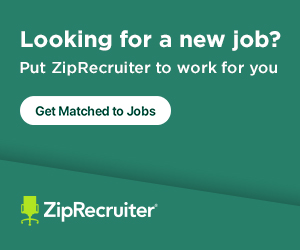We may earn a commission if you click on a product link and make a purchase at no additional cost to you. For more information, please see our disclosure policy.
A tremendous amount of time and effort goes into preparing and succeeding in getting a new job. Updating resumes, leveraging your networks, going on interviews, etc. Many people face rejection during the
If you’ve been rejected for a position you were confident about, it’s essential to determine what went wrong. By analyzing and refining your approach, you can address the issues that have hindered your success and increase your chances of securing future job offers.
Not getting job offers? It might be your resume, interview skills, or networking. Let's change that! Improve your approach and land your dream job. Share your tips or questions! #JobSearch #CareerAdvice #ResumeTips #InterviewTipsClick To TweetWeak Resume or CV
Your resume is often the first impression you make on potential employers. A poorly formatted or generic resume can land you in the rejection pile. Ensure
Not Tailoring Applications to the Job
Sending out the same application to multiple employers can hinder your
Get 10X more Job Interviews with JobCopilot. Automatically apply to jobs from 50,000+ companies worldwide
Lack of Relevant Experience
Employers seek candidates who possess the necessary experience to perform the job effectively. If your background doesn’t align with the job requirements, consider gaining relevant experience through internships, volunteering, or online courses. Highlight transferable
Poor Online Presence
In today’s digital age, employers often review your online profiles before making
Give yourself a real advantage in your job search with Resume.io — the best online resume maker: created by experts, improved by data, and trusted by millions of professionals. Easy to use and complete within minutes. Try it now for free!
Negative References
References play a crucial role in the hiring process. Negative feedback from previous employers or colleagues can cost you job offers. Maintain good relationships with past employers and select references who can vouch for your
Unrealistic Salary Expectations
Demanding a
The latest guide in the top-selling, easy-to-use Perfect Phrases series gives you the correct vocabulary to use to get the best salary or job offer possible. Using words and phrases that take away the taboo surrounding the subject of money, you can ask for what you want-and deserve-with confidence.
You Are Not Prepared
Reading the job description does not qualify as being prepared for a
Square Peg, Round Hole
Your resume looks like a good match for the job description. You get called for the interview but in your heart, you know that you are not qualified for the job. You decide to go on the interview anyway. We all have our doubts from time to time, sometimes it is because we are taking that leap to the next level in our career. But sometimes it is real, and only you know if are not qualified.
Not having the required qualifications is one more reason you might not be getting the job offer. Candidates often lack the necessary
Never miss an opportunity. On ZipRecruiter, top companies reach out to you.
There's no need to look anywhere else. With over 9 Million jobs, ZipRecruiter is the only site you'll ever need to find your next job.
You Ask the Wrong Questions
Another major reason for not getting a job offer is that maybe you asked the wrong questions (or no questions at all). Don’t ask about overtime and vacation too early in the process, there will be plenty of time for this in later interview stages, or even once you get an offer. Not asking questions will make the
No matter how good you look, how much research you've done, or how perfectly your qualifications match the job description, if you're not prepared with great answers to the toughest interview questions, you won't get the job.
You Were More Interested in “What’s in it for me?”
Second only to being “the right person for the job” is showing enthusiasm for the company and the role. You need to convince the
Poor Communications Skills
Interviews are short in nature and you will have a limited time to communicate much to the
Getting a job is like parking. You have to be in the right place at the right time. In How to Interview Like a Pro, author Mary Greenwood provides strategies and practical tips about how to prepare for job hunting and how to interview.
Related posts:
Joey Trebif is the pen name of Mark Fiebert, a former finance executive who hired and managed dozens of professionals during his 30-plus-year career. He now shares expert job search, resume, and career advice on CareerAlley.com.







